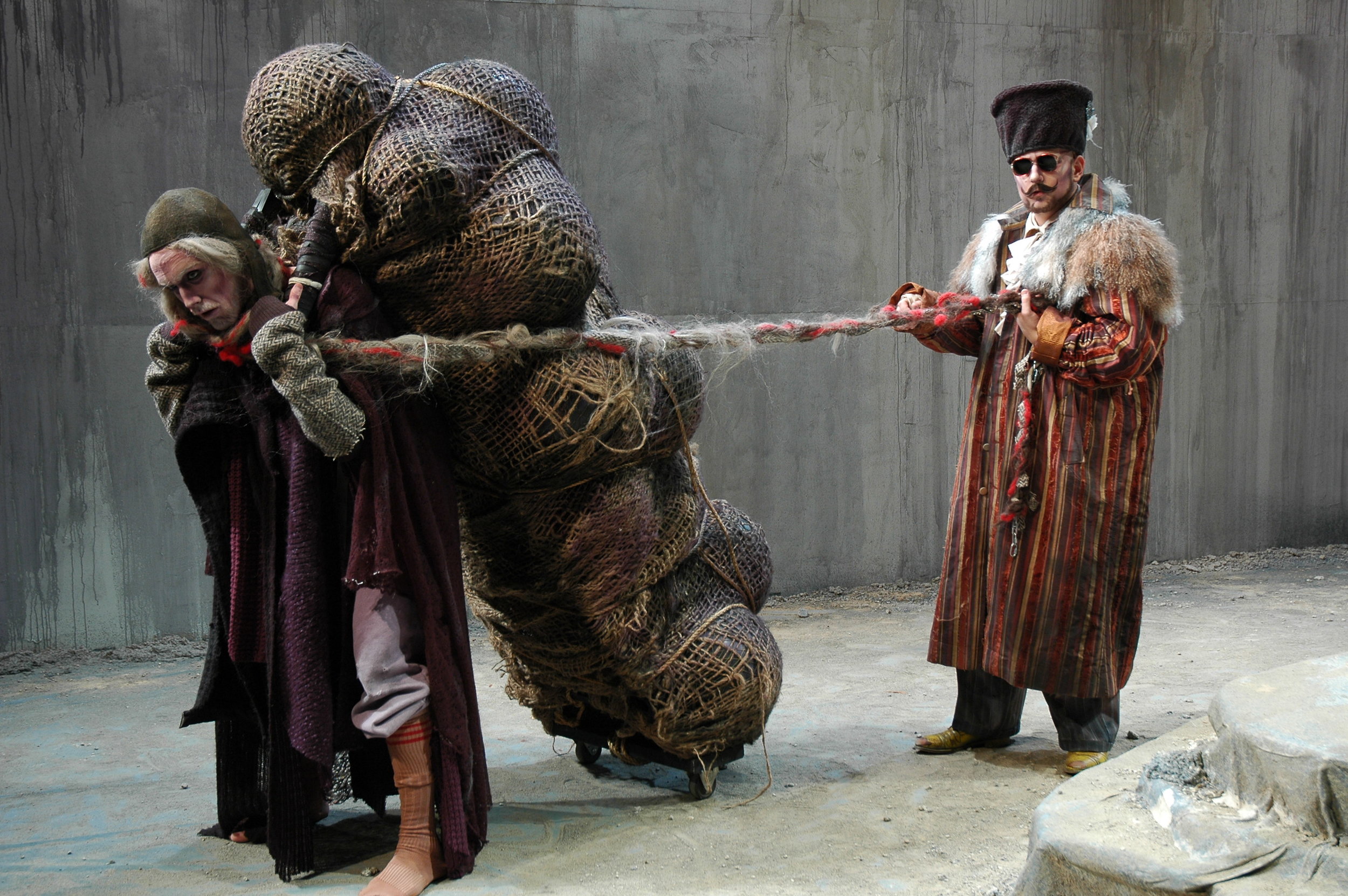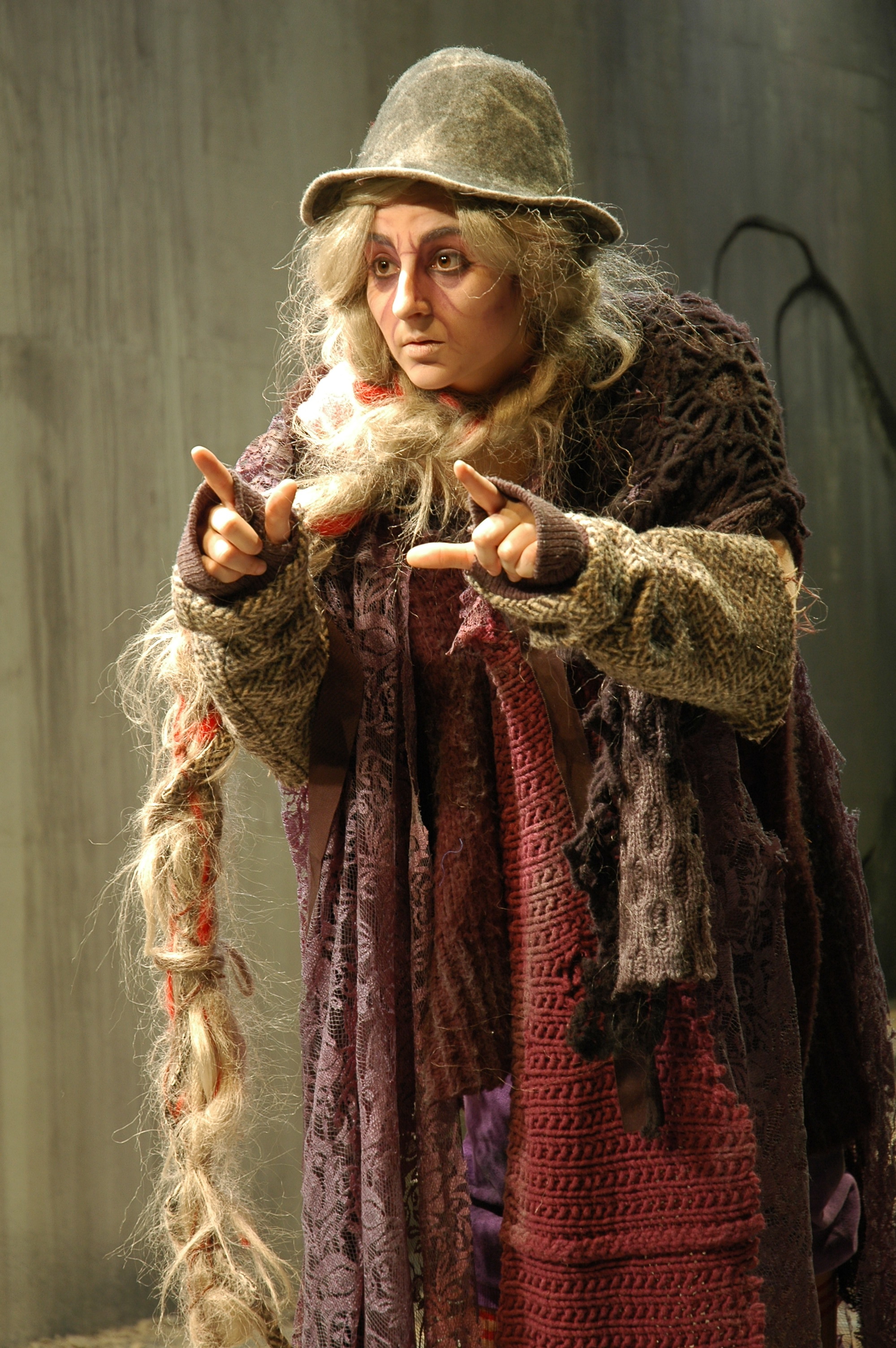Waiting for Godot








Samuel Beckett originally wrote this play 50 years ago. While he is now a renowned playwright with an international reputation, this was hist first attempt at playwriting - with little practical knowledge of theatre. It proceeded to set the world of theatre on its head - none had ever experienced a play quite like it, and it has served as a major influence on theatre development ever since. It is considered to be a world classic by critics and theater lovers alike.
During the last election, the buzz word of the platform of both parties was '“Change”. Most were screaming for something different - in some cases, anything different than they had experienced for the last eight years. They were clearly waiting for someone or something to come into the world and make their lives different. In our play. Waiting for Godot, Vladimir and Estragon are waiting for someone to come into their lives and free them from their despair. They have been unable to break out of the rut of their lives. They just keep circling in the same routines and rituals, unable to move on. If Godot does not come today, then he will certainly come tomorrow and they must be there to greet him. It is this blind hope that continues to leave them in in the depths of despair at the end of each day. Rather than gaining the courage and vision to step out on their own, they continue to wait for someone to come to save them. Actually in this way, Godot represents the Messiah who will change the world for us. Assuming no responsibility for this change ourselves, we wait and hope that tomorrow things will certainly be better - when Godot comes.
When asked who Godot represented, Beckett stated, “that if I knew, I would have put it in the play.” Many have suggested that they believed Godot to represent God, hence the similarity of name. If we are to believe Beckett, Godot represents God only to the degree that he symbolizes a force beyond ourselves that we hope will deliver us - someone or something that will save us from our current malaise and point us in the right direction. This force tends to obliterate personal responsibility and accountability.
Working on this play has been a challenging experience as we have explored the forces that keep us in stasis, that keep us from realizing goals and dreams. That status quo, the known is safer.Stepping out requires a degree of risk. Fear tends to keep us here we are. What if the change we get is not the change we want? There are no guarantees. What keeps our foot hovering above the line - rather than stepping over it? Does our desperate need for companionship keep us from moving ahead - would that future be worth it if we were alone? The power of exploring a theater piece like this is not about preaching a message, but in finding the right questions. These are but a few of the weighty questions that we have wrestled with during our rehearsals.
The focus of the play is on waiting. what games do we play to distract us from the boredom? What routines and rituals do we concoct in a desperate attempt to find meaning and build hope? As you will notice, I chose to double cast the play. I thought it would be interesting to explore the play from a gendered perspective, hence men will perform one night, women the next. Do men respond to the themes of waiting and change differently than women? Is the need for companionship along the way any stronger for women than for men? Is loneliness more real for one than the other? Is this play only for and about men or can women be invited to join the dialog constructed by Beckett in this masterpiece? We invite you to come to join us for both experiences.
